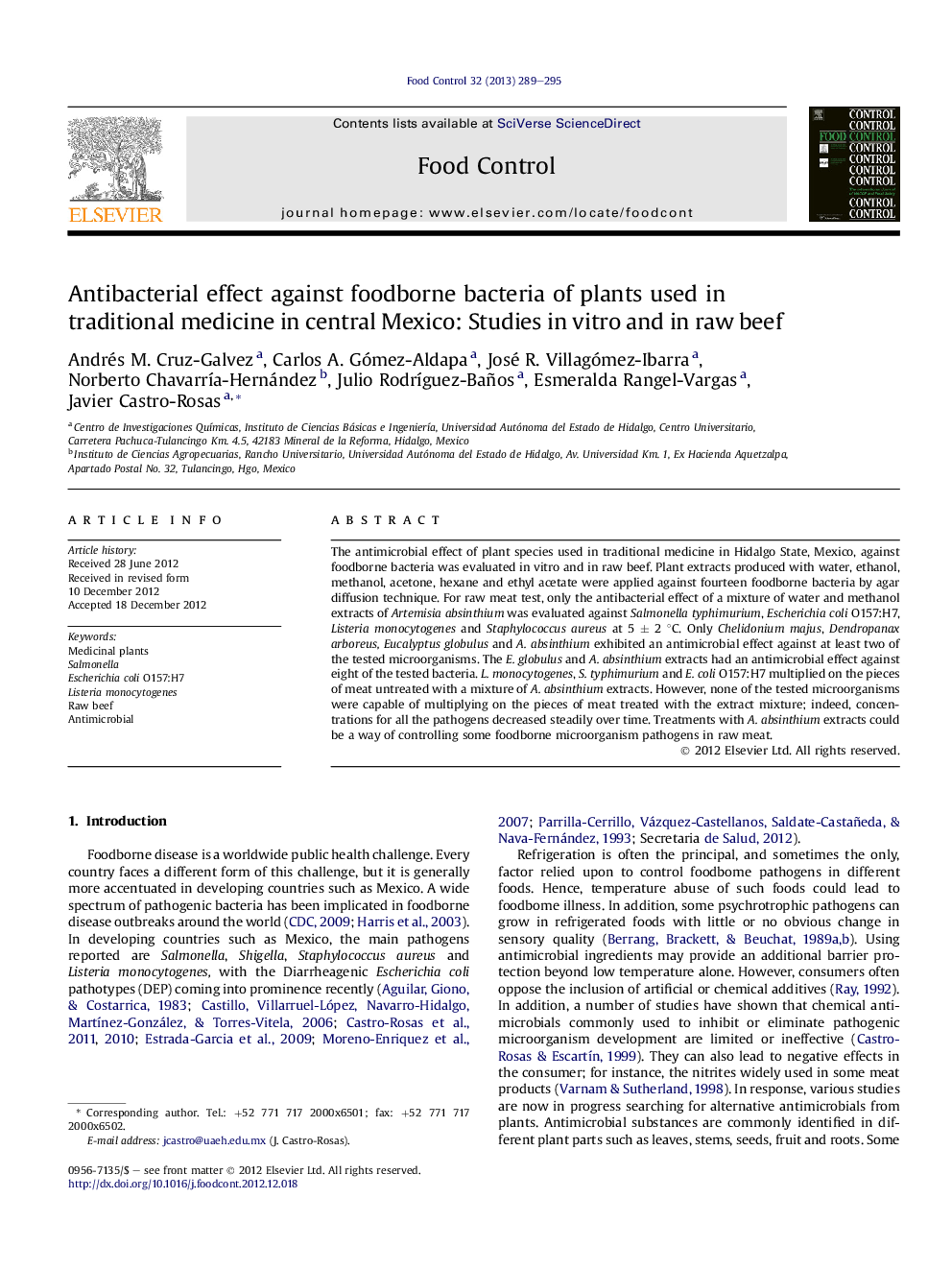| Article ID | Journal | Published Year | Pages | File Type |
|---|---|---|---|---|
| 6393131 | Food Control | 2013 | 7 Pages |
The antimicrobial effect of plant species used in traditional medicine in Hidalgo State, Mexico, against foodborne bacteria was evaluated in vitro and in raw beef. Plant extracts produced with water, ethanol, methanol, acetone, hexane and ethyl acetate were applied against fourteen foodborne bacteria by agar diffusion technique. For raw meat test, only the antibacterial effect of a mixture of water and methanol extracts of Artemisia absinthium was evaluated against Salmonella typhimurium, Escherichia coli O157:H7, Listeria monocytogenes and Staphylococcus aureus at 5 ± 2 °C. Only Chelidonium majus, Dendropanax arboreus, Eucalyptus globulus and A. absinthium exhibited an antimicrobial effect against at least two of the tested microorganisms. The E. globulus and A. absinthium extracts had an antimicrobial effect against eight of the tested bacteria. L. monocytogenes, S. typhimurium and E. coli O157:H7 multiplied on the pieces of meat untreated with a mixture of A. absinthium extracts. However, none of the tested microorganisms were capable of multiplying on the pieces of meat treated with the extract mixture; indeed, concentrations for all the pathogens decreased steadily over time. Treatments with A. absinthium extracts could be a way of controlling some foodborne microorganism pathogens in raw meat.
⺠Antibacterial effect of 30 plants against 14 pathogenic bacteria was studied in vitro. ⺠Antibacterial effect of Artemisia absinthium extracts was evaluated on raw beef. ⺠Only four plants exhibited an antimicrobial effect in vitro. ⺠Eucalyptus globulus and A. absinthium showed a high antimicrobial effect. ⺠A. absinthium showed antimicrobial effect against pathogenic bacteria on raw beef.
